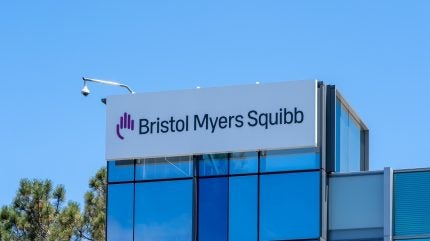
Bristol Myers Squibb (BMS) has reported outcomes from the Phase III CheckMate -816 trial, indicating an overall survival (OS) benefit when Opdivo (nivolumab) is used with platinum-doublet chemotherapy as a neoadjuvant treatment for resectable non-small cell lung cancer (NSCLC) patients.
The open-label, randomised, multi-centre trial focused on NSCLC adults with tumours measuring at least 4cm, or those with node-positive disease.

Discover B2B Marketing That Performs
Combine business intelligence and editorial excellence to reach engaged professionals across 36 leading media platforms.
It compared the combination to chemotherapy alone in subjects with resectable stage IB to IIIA NSCLC.
Event-free survival and pathological complete response were the primary endpoints of the trial, with OS as a key secondary endpoint.
The safety profile was consistent with previous findings, without any new safety signals being identified.
BMS plans to conduct further analysis and will offer a comprehensive future update in a peer-reviewed setting.

US Tariffs are shifting - will you react or anticipate?
Don’t let policy changes catch you off guard. Stay proactive with real-time data and expert analysis.
By GlobalDataBMS late development, oncology global programme lead, and vice-president Dana Walker said: “The final analysis of overall survival in the CheckMate -816 study underscores the potential of Opdivo, in combination with chemotherapy, to provide a meaningful survival benefit for patients with resectable NSCLC.
“This is the first and only Phase III study of a neoadjuvant-only immuno-oncology therapy to show a statistically significant benefit in patients with resectable NSCLC.”
A programmed death-1 (PD-1) immune checkpoint inhibitor, Opdivo is tailored to use the body’s immune system to restore anti-tumour immune responses.
Since its first regulatory approval in July 2014, the therapy has been approved in more than 65 nations, including the EU, China, Japan, and the US.
In addition, the company noted that the Opdivo and Yervoy combination regimen was the first immuno-oncology combination approved for metastatic melanoma treatment and is now approved in over 50 countries.
Before this, BMS reported outcomes from the POETYK PSO long-term extension trial of Sotyktu for plaque psoriasis.





